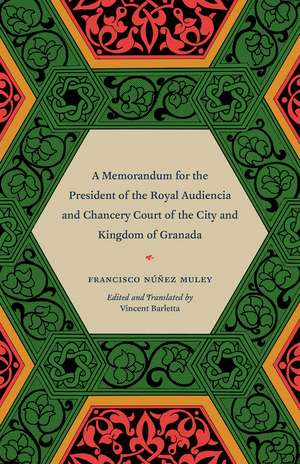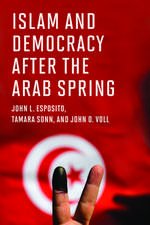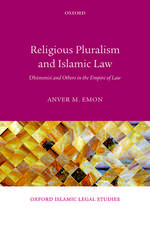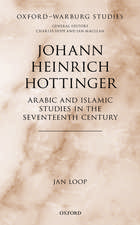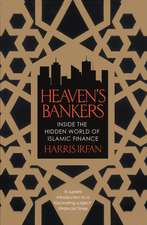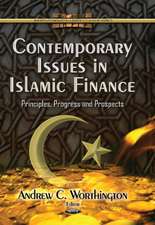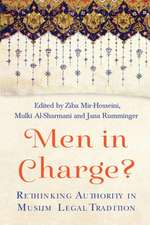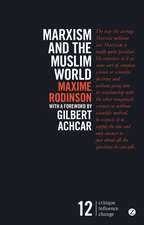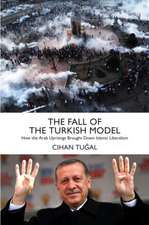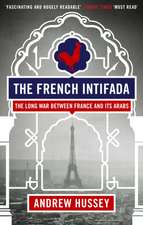A Memorandum for the President of the Royal Audiencia and Chancery Court of the City and Kingdom of Granada
Autor Francisco Núñez Muley Traducere de Professor Vincent Barlettaen Limba Engleză Paperback – 25 noi 2013
Conquered in 1492 and colonized by invading Castilians, the city and kingdom of Granada faced radical changes imposed by its occupiers throughout the first half of the sixteenth century—including the forced conversion of its native Muslim population. Written by Francisco Núñez Muley, one of many coerced Christian converts, this extraordinary letter lodges a clear-sighted, impassioned protest against the unreasonable and strongly assimilationist laws that required all converted Muslims in Granada to dress, speak, eat, marry, celebrate festivals, and be buried exactly as the Castilian settler population did.
Now available in its first English translation, Núñez Muley’s account is an invaluable example of how Spain’s former Muslims made active use of the written word to challenge and openly resist the progressively intolerant policies of the Spanish Crown. Timely and resonant—given current debates concerning Islam, minorities, and cultural and linguistic assimilation—this edition provides scholars in a range of fields with a vivid and early example of resistance in the face of oppression.
Now available in its first English translation, Núñez Muley’s account is an invaluable example of how Spain’s former Muslims made active use of the written word to challenge and openly resist the progressively intolerant policies of the Spanish Crown. Timely and resonant—given current debates concerning Islam, minorities, and cultural and linguistic assimilation—this edition provides scholars in a range of fields with a vivid and early example of resistance in the face of oppression.
Preț: 177.39 lei
Nou
Puncte Express: 266
Preț estimativ în valută:
33.94€ • 35.53$ • 28.25£
33.94€ • 35.53$ • 28.25£
Carte tipărită la comandă
Livrare economică 01-15 aprilie
Preluare comenzi: 021 569.72.76
Specificații
ISBN-13: 9780226103037
ISBN-10: 022610303X
Pagini: 128
Ilustrații: 2 halftones, 2 maps
Dimensiuni: 140 x 216 x 13 mm
Greutate: 0.18 kg
Editura: University of Chicago Press
Colecția University of Chicago Press
ISBN-10: 022610303X
Pagini: 128
Ilustrații: 2 halftones, 2 maps
Dimensiuni: 140 x 216 x 13 mm
Greutate: 0.18 kg
Editura: University of Chicago Press
Colecția University of Chicago Press
Notă biografică
Vincent Barletta is associate professor of Iberian and Latin American Cultures at Stanford University. He is the author of Covert Gestures: Crypto-Islamic Literature as Cultural Practice in Early Modern Spain, winner of the 2007 La corónica International Book Award and Death in Babylon: Alexander the Great and Iberian Empire in the Muslim Orient.
Cuprins
Acknowledgments
Introduction
A Memorandum for the President of the Royal Audiencia and Chancery Court of the City and Kingdom of Granada (1567)
Appendix
Excerpts from Mármol Carvajal’s History of the Rebellion and Punishment of the Moriscos of the Kingdom of Granada (Historia del [sic] rebelión y castigo de los moriscos del Reino de Granada)
Selected Bibliography
Introduction
A Memorandum for the President of the Royal Audiencia and Chancery Court of the City and Kingdom of Granada (1567)
Appendix
Excerpts from Mármol Carvajal’s History of the Rebellion and Punishment of the Moriscos of the Kingdom of Granada (Historia del [sic] rebelión y castigo de los moriscos del Reino de Granada)
Selected Bibliography
Recenzii
“Since its discovery in Madrid’s Biblioteca Nacional and publication in 1899, Francisco Núñez Muley’s Memorandum has become a key source for understanding the culture of early modern Spain’s Moriscos (Christian converts from Islam), and the increasingly tense relations between this minority group and the Castilian majority in the decades that led up to the Moriscos’ expulsion in 1609. . . . Vincent Barletta’s excellent translation and edition now makes this important text available for an English-speaking public. . . . Together, the translated text and annotations make Núñez Muley’s Memorandum accessible to specialists and to general readers alike.”
"Barletta's work is a welcome addition for undergraduate teaching, where it might expose students to a stimulating primary source and generate a lively classroom discussion."
"Núñez Muley’s Memorandum is shrewd, opaque, and droll, which is why it will entice and instruct twenty-first century readers. By translating this allure as well as the Spanish, Barletta has given students new to early modern Iberia reason to look deeper. At the same time, however, he has also offered specialists new lenses for looking in the first place."
“Vincent Barletta’s English edition of Nuñez Muley’s Memorandum provides a valuable contribution to recent scholarship on Early Modern morisco life, such as Elizabeth Perry’s Handless Maiden, and expands our rather scant knowledge of what daily life and cultural practices for this persecuted minority were like at the end of the sixteenth century. Nuñez Muley paints a picture of increased intolerance for morisco social customs, including the use of public baths, wearing typical morisco clothing, the ownership of sub-Saharan African slaves and the use of Arabic for mercantile and everyday life.”
"Barletta has provided us with the first-ever English translation of the Memorandum, based on Manuscript number 6176 of the National Library of Spain in Madrid. Barletta’s translation, complete with extensive footnotes that help to clarify many linguistic, historical and religio-cultural aspects of the text, is executed with care and skill and succeeds in capturing Núñez Muley’s nuanced prose."
“This is a highly useful English-language edition of a fascinating work that offers a detailed look into the anxieties and concerns of the Morisco minority in Spain, and the perspective of one such Morisco of Christian rule. Professor Barletta’s translation will be of immense help to anyone interested in co-existence in early Modern Spain, the history of relations between Christianity and Islam in Europe, European colonialism, and the formation of national identity in a context of different faiths and languages.”
“Vincent Barletta has been at the forefront of placing Morisco writings, both literary and non-literary, in the wider context of cultural studies of the Spanish Golden Age, and this approach deserves encouragement. The Memorandum is one of the most important witnesses to the century-long cultural and religious struggle that resulted in Spain's expulsion of the Moriscos in 1609. This accurate and fluent translation emphasizes how much this text has to tell the modern reader about the interpenetration of supposedly irreconcilable 'Eastern' and 'Western' elements in the Spain of the period.”
“This is an original and audacious work that heightens the political import of Núñez Muley’s Memorandum even as it highlights its relevance for modern readers interested in the current relations between Islam and the West. Scholars in the humanities will find these intercultural dialogues with Islam to be an extraordinary resource.”
“Vincent Barletta’s translation, complete with extensive footnotes that help to clarify many linguistic historical and religio-cultural aspects of the text, is executed with care and skill and succeeds in capturing Núñez Muley's nuanced prose.”
"Francisco Nunez Muley argues the extreme importance of an awareness of the paradoxical interaction between collaboration/emulation and resistance for an understanding of the text: in Memorandum one can study the strategies of appeasement and resistance used by the elderly Morisco (32). Nunez Muley demonstrates the loyalty and assimilation of noble Moriscos who fought on behalf of Charles V at the time of the comuneros yet also insists that the conversions of 1502 were forced and that the pact of the time contained no agreement to change their style of dress and assimilate fully."
